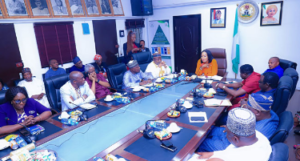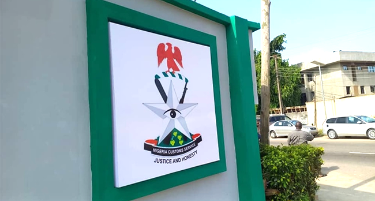The Federal Government of Nigeria has mandated that all private jet owners in the country submit their aircraft documents for a comprehensive verification process. This directive was announced through a notice issued by the Nigeria Customs Service (NCS).
The primary goal of this exercise, as articulated by the NCS, is to identify private aircraft that have been imported improperly and without the necessary documentation. This initiative also aims to ensure that all private aircraft imports comply with the country’s regulations and to optimize revenue collection for the government.
“The Nigeria Customs Service announces a verification exercise for privately owned aircraft operating in Nigeria,” the statement read. “This exercise aims to identify improperly imported private aircraft without documentation, ensuring proper imports and maximum revenue collection.”
Scheduled to commence on Wednesday, the verification exercise will span 30 days. The designated venue for this process is the Tariff and Trade Department Room at the Nigeria Customs Service Headquarters, located at No 4 Abidjan Street, Wuse Zone 3, Abuja. The verification activities will be conducted daily from 10:00 am to 5:00 pm.
Private jet owners and operators are required to present several essential documents during the verification process. These documents include the aircraft’s Certificate of Registration, the Nigerian Civil Aviation Authority’s (NCAA) Flight Operation Compliance Certificate, the NCAA’s Maintenance Compliance Certificate, the NCAA’s Permit for Non-Commercial Flights, and, if applicable, a Temporary Import Permit.
This directive comes in the wake of a similar exercise that was put on hold by the Federal Government last year. Originally, the government sought to recover import duties amounting to billions of naira from private jet operators who had exploited technical loopholes to evade these payments. In 2021, the Federal Government had authorized the grounding of approximately 91 private jets due to unpaid import duties totaling over N30 billion.
This decision was challenged in court by around 17 owners of foreign-registered private jets, including prominent business figures, leading commercial banks, and other wealthy Nigerians, who sought to prevent the grounding of their aircraft over alleged import duty defaults.
The NCS had previously embarked on a thorough review of import duties paid on private jets imported into Nigeria since 2006. This review aimed to identify discrepancies and ensure compliance with import regulations.
In a related development, the Nigerian Civil Aviation Authority (NCAA) has issued a stern warning to private jet owners holding non-commercial flight permits against using their aircraft for commercial flight activities. In March, the NCAA threatened severe penalties for any non-compliance with this directive.
According to Michael Achimugu, Director of Public Affairs and Consumer Protection, private jet owners with permits for non-commercial flights are prohibited from using their aircraft to transport passengers, cargo, or mail for payment or compensation, essentially barring them from engaging in commercial operations or charter services.
Achimugu emphasized that this directive is in accordance with Section 32 (4) of the Civil Aviation Act 2022. He stated that the NCAA would enforce strict compliance by taking appropriate enforcement measures against any permit holder found engaging in unauthorized operations.
These measures could include the suspension, withdrawal, or revocation of their Permit for Non-Commercial Flight. Achimugu further noted that NCAA officials have been deployed to General Aviation Terminals and private wings of airports to monitor the activities of private jet owners and ensure adherence to the regulations.
“The public is hereby notified that it is illegal to engage PNCF holders for commercial purposes,” Achimugu stated. He reiterated the NCAA’s commitment to zero tolerance for violations of the Nigeria Civil Aviation Regulations 2023, emphasizing that the authority would continue to enforce strict compliance by implementing suitable sanctions against violators.
The comprehensive verification exercise and the NCAA’s stringent enforcement measures highlight the Federal Government’s resolve to ensure proper documentation, compliance with import and aviation regulations, and maximization of revenue collection from the private aviation sector in Nigeria.
This initiative underscores the government’s commitment to transparency, accountability, and the rule of law in the aviation industry. Private jet owners and operators are urged to comply with this directive to avoid any penalties or disruptions to their operations.




